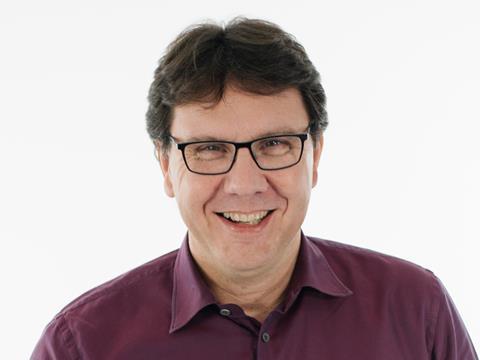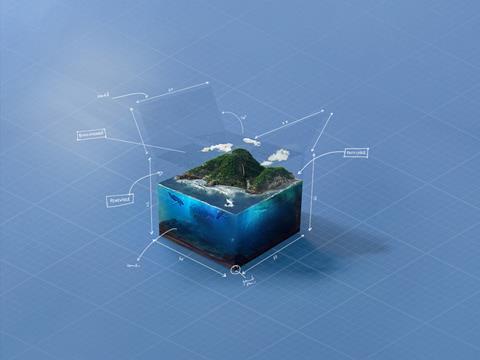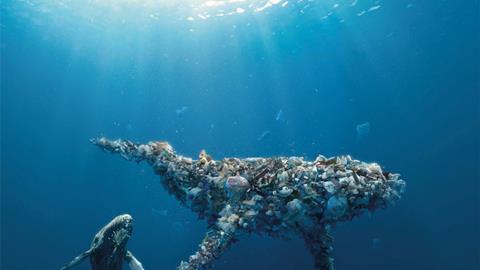Last autumn Smurfit Kappa launched its bold and open-ended Better Planet Packaging initiative. Tim Sykes met Arco Berkenbosch (VP Innovation and Development) at Smurfit Kappa’s Global Experience Centre at Schiphol to find out how the sustainability brief looks one year on – and how the initiative has challenged thinking, externally and internally.
Tim Sykes:
It seems to me that the societal discussion around packaging waste may have grown slightly more complex since last year, at least in respect of the climate crisis coming back on the agenda after being almost obscured by the focus on ocean plastics. From a corrugated point of view, how do you view the evolving debate?
Arco Berkenbosch:
We had a period of hype which maybe went a bit extreme. But in our public discourse there’s often a dynamic that we have a big, emotional reaction to an issue and then step back into a more realistic discussion. When you start assessing the practical implications of eliminating all plastic, then you have to ask yourself questions about what that would mean for carbon emissions, climate change, etc. In fact, questions about carbon emissions are always in the brief from clients when asking about replacing plastic.
Having said all that, the frequency of requests we receive from brand owners to look at replacing plastics with corrugated is still accelerating. The pressure to eliminate plastic waste isn’t going to go away. It’s very visible, tangible and actionable. What I love about it is that it offers us an opportunity to apply creativity and make a big impact. For instance, when a big brand switches to our fibre-based multi-packs or with Tide’s EcoBox you can eliminate a lot of plastic in one go. By comparison, with carbon footprint it’s much more difficult to make a big difference, and the answers are rarely black and white. Make small adjustments to the underlying assumptions and an LCA can be used to justify either one of two opposing claims.
“We like partnerships that make our life a little bit difficult”
Tim Sykes:
Another feature of today’s sustainability debate is that increasing voices and organisations are promoting reuse as inherently superior to recycling…
Arco Berkenbosch:
I don’t think there’s any disagreement that the first of the four Rs – reduction (or optimisation) of packaging – is vital. Nor is there any doubt that recovery of materials is better than landfill or incineration. When you talk about reuse versus recycling, it can be quite an academic question. For instance, if you take a plastic crate, dismantle the walls, wash them and reassemble them, is that recycling or reuse? Or with corrugated, after collection and processing you recycle the box, but you reuse the fibres. The fundamental thing is that in both instances you avoid extracting new resources from the planet.
The complexities around sorting and recycling plastics in a closed loop maybe make the reuse model more relevant to plastic packaging. With paper we do have a closed loop of paper to paper (due to our very high rate of collection and recycling). However, it took us years to build a viable system that accounted for many different grades and qualities, and we still lose 10 per cent of the material with every cycle. Plastic faces similar challenges and I think it will take some years to solve them.
Tim Sykes:
Last year you introduced to us Smurfit Kappa’s big new Better Planet Packaging idea. Since then you’ve run two Design Challenges. What was the thinking behind the briefs you came up with, and what were the outcomes?
Arco Berkenbosch:
The idea, as I described to Packaging Europe, was to reach out to the wider design community in search of original thinking. In setting out our first practical challenges, we wanted to address hot topics for the market, but lacked an obvious solution that our own designers would find.
The first topic we selected was isolation for temperature control – a big problem for the e-commerce market – and we chose chocolate for the particular challenge. We also wanted to set a challenge that was B2B rather than consumer-facing and touched our own core business more directly, so we decided to ask designers to find a sustainable alternative to stretch wrap.
The winner of the e-commerce chocolate challenge, Kerstin Fischbacher, put forward a thermal insulation product made from paper pulp which is formed in a similar fashion to expanded polystyrene. The winner of the stretch wrap alternative challenge, Eric Haas, came up with an idea for a net-like structure, made from paper, that would secure pallet loads of different shapes and sizes. We plan to cooperate with both innovators to develop their winning ideas further. We’re excited about taking each of them to the next level and have assigned two project teams to explore their full potential.

Tim Sykes:
What happens next with Better Planet Packaging: will the Design Challenges become a regular mechanism to add solutions to your product portfolio?
Arco Berkenbosch:
This year’s challenges attracted a lot of engagement and lots of interest from brand owners. However, at Smurfit Kappa our approach tends to be very serious. We like to really analyse the evidence before we commit to something. If we have a future winner that has a great marketing impact but we can’t commercialise, we aren’t going to pursue it. This isn’t a marketing initiative, but about developing more sustainable packaging solutions. At heart Smurfit Kappa is an engineering company: ideas have to be tested and quantified and work practically if they are going to be taken forward.
We have a similarly realistic approach to evolving Better Planet Packaging itself: scrutinising the results at every stage before deciding where to take it next.
Tim Sykes:
From our conversation last year, it was clear that Better Planet Packaging has a broader agenda than simply setting challenges for the global design community.
Arco Berkenbosch:
That’s correct. Externally, we’re very happy about the impact of the initiative and the energy it has created. Senior stakeholders at big brands who never used to pay a lot of attention to packaging have been strongly engaged. At our latest innovation event a number of leading brand owners started a dialogue with us on how to make sustainable packaging real.
At the same time there’s an internal focus.. There’s also a ‘BPP starts with me’ initiative encouraging employees to take individual responsibility for sustainability, which is scalable across the business.
More fundamentally, I’d say Better Planet Packaging has challenged us to think about how we design and innovate, and acted as a bridge between our short-term design activities and the big questions that tend to be the focus of our longer term R&D agendas.

Tim Sykes:
What sorts of challenges fall under the focus of design and R&D, respectively?
Arco Berkenbosch:
In design we look at how we can leverage existing materials and technologies, for instance to eliminate shrink wrap from multi-packs. We’ve been developing new machine and packaging concepts for this topic.
As for our R&D agenda, one of the key long-term challenges we’re addressing is the tension between barriers and recyclability. Recycling for us means dissolving in water at 70 or 80 degrees, so there’s an inherent conflict there if you want to add a water barrier. This means developing new materials (like our AgroPaper™) but also working with the waste management sector on how to sort fibres from barrier materials after collection.
Tim Sykes:
This brings us back to the topic we started with. How active a role does Smurfit Kappa intend to play in responding to the packaging waste problem?
Arco Berkenbosch:
It would be easy for Smurfit Kappa to sit back and continue to grow on the back of the expanding e-commerce market. In principle we perhaps shouldn’t be stepping into the barriers problem. Bringing aseptic cartons and coffee cups into the paper recycling stream comes with the risk of introducing impurities.
On the other hand, it’s good to step out of our comfort zone and take more responsibility. In the past we’ve brought a lot of business innovation toward creating a closed loop in paper. We now have an opportunity to share our experience and knowledge in how to deal with multiple sorting streams. We’re working with organisations such as the Plastic Soup Foundation. We like partnerships that make our life a bit difficult. This is also something I love about the Better Planet Packaging initiative: it generates a lot of creative tension in Smurfit Kappa.














